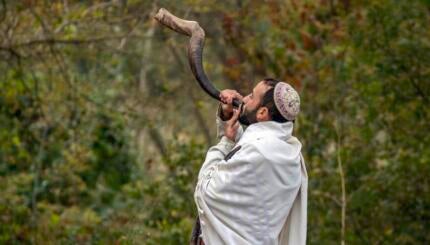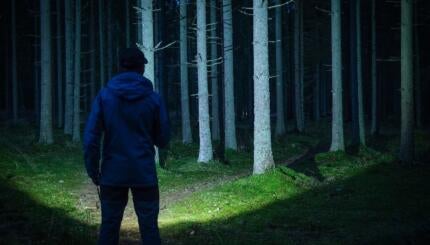This essay is reprinted with the permission of Clal-The National Jewish Center for Learning and Leadership.
With Tu Bishvat coming up, I’ve been thinking about trees–it is the New Year for trees, and in Israel the holiday is celebrated by planting trees. Living in New York City, I don’t think too much about things that grow from the ground. But that’s been changing, because in the last few years, my father has taught me to be a gardener.
Gardening has given me another perspective on food and how it gets from the ground to the table. I grew up in Connecticut and now live in Manhattan, where it’s easy to think that vegetables come from Fairway or Food Emporium, and that they really do grow with that shiny spray stuff on them.
I’ve never been a nature girl and wanted nothing to do with my father’s garden for many years. But I became interested about five years ago, and my father welcomed me into his garden. He taught me how to smell the soil to see if it is good, how squash should be planted close together in a circle and then thinned out, how cucumbers should be planted near a fence because their tendrils need to climb, and that parsley can last until January or February if it’s covered at night when the frost hits.
Gardening together, we worried about what would happen if there was no rain or too much rain. We worried when we had to cut down an old, rotten tree that had shaded our garden–what would happen to the plants without shade? Many times, we were together in the garden urging the plants to grow or just watching them, and talking about how each plant was doing.
My father taught me that I had to get my hands in the dirt. He said if I wore gloves I wouldn’t be able to feel it. He taught me to feel my own connection to the earth. It took time to get used to that. I was constantly on the lookout for worms, snakes, and bugs, but once I stopped screaming each time I saw one, I couldn’t wait to wake up early in the morning, go to the garden, and see what had happened the previous night.
My father showed me how to hill and weed the plants, and I began to feel like a kid again, covered from head to toe in dirt. My heart jumped when I saw the seeds push their way up through the soil. I ran screaming into the house when we began harvesting the plants to show my mother the first bunch of carrots, the first tomatoes, and ears of corn. I began to understand why my father was always in his garden, and I wanted to be there, too, in the dirt. If there wasn’t something to be hilled, weeded, or planted, I was disappointed.
Back in New York, I call my father and we discuss the garden. Even when I am not there, the garden is a part of my life.
Before becoming a gardener, when I would recite a bracha (blessing) over food, it didn’t contain much meaning for me. Since I knit and know the amount of work that goes into making a garment, I can relate to the blessing recited in the morning when one gets dressed: “Blessed are you, Sovereign of the Universe, who dresses the naked.” But I think the fact that I couldn’t connect to an experience made it hard for me to consistently recite the brachot (blessings) over food.
And then the garden got me thinking about figure eights. The more I gardened, the more I saw and felt the growing process, the more I saw how brachot are related to experience, and how experience is related to brachot and how they are inseparable. I understood how brachot and experience constantly flow back and forth into and out of each other. I think that’s probably what the rabbis had in mind when they created brachot.
My experience with brachot has been enriched because I made the connection that the rabbis were trying to teach. I don’t mean to say that one must have a deep mystical experience in order to recite a bracha. That’s not possible every time and one doesn’t need to have my type of direct experience either.
I want my brachot, which are really an acknowledgement and don’t need to always be formal, to sustain me, to relate to my own experience, and I want my experiences to make me want to acknowledge them with brachot.
This year, I plan on celebrating Tu Bishvat at a seder, a Kabbalistic invention that is modeled on the Passover seder. I’ll have four cups of wine and different types of fruit. Even though I’ll be far from the garden and trees, I know that reciting the various blessings over wine and fruits will bring me back into the garden, and I hope it will bring me to a deeper, newer understanding of the land and its fruits.
Janet R. Kirchheimer is the author of How to Spot One of Us, and a Teaching Fellow at Clal.
Tu Bishvat
Pronounced: too bish-VAHT (oo as in boot), Origin: Hebrew, literally "the 15th of Shevat," the Jewish month that usually falls in January or February, this is a holiday celebrating the "new year of the trees."


